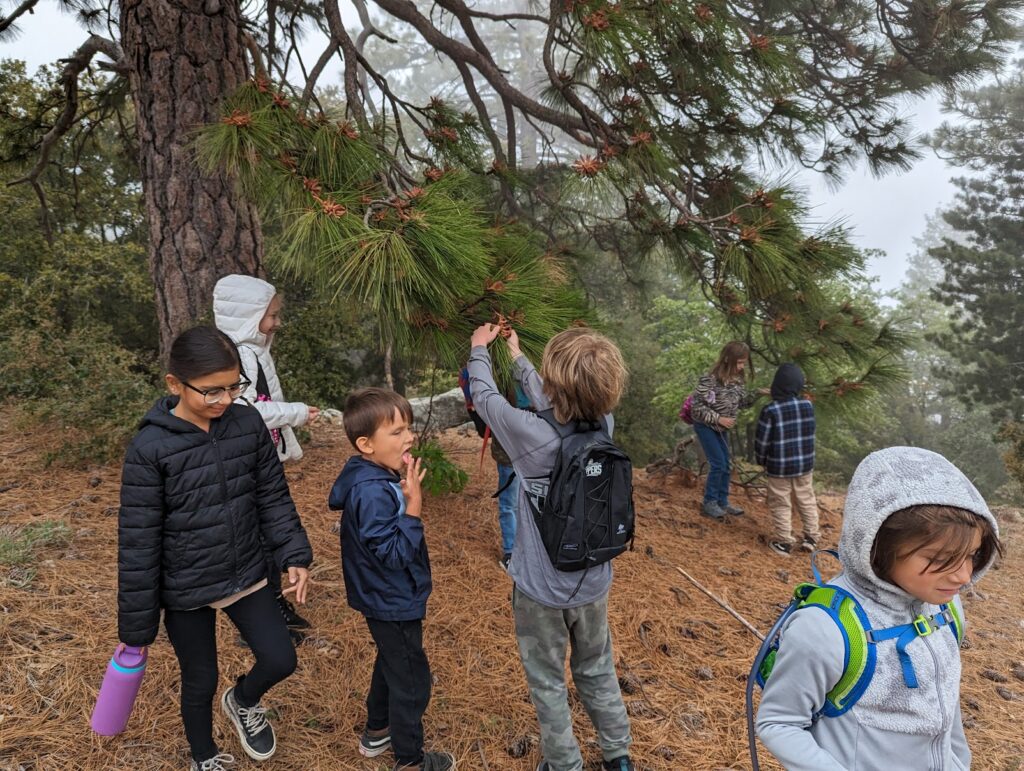Our ongoing homeschool and after-school Explorations in Ecology Meetups support children playing and learning in nature. Through play, they develop an understanding of, and respect for, the deep interrelatedness of living and non-living things. Throughout these meetups, children build on their developing love of the natural world to take on the role of guardians of Mother Earth at this critical moment in human history and learn content specified in the CA K-8 science standards. As a permaculture designer, I integrate permaculture principles, ethics, concepts, and practices throughout this sequence. Nature-Based Science is taught by Peter Kindfield.
Classes require at least four students and we try to cap all of our classes at 8 students.
Explorations in Ecology is an outdoor, in-person meetup.
Our 10-week Spring ’26 session will start the week of March 2 and end the week of May 11. The week of April 6 will be a break week and the weeks of May 18 and May 25 will be used for make-up sessions should the need arise.

Groups: Our Wednesday meetups will be multi-aged for 5-15 year-olds. If that class fills with eight children and there are at least four other children who wish to enroll, we will open an additional multi-age session on Tuesdays.
Our ongoing Exploration in Ecology Meetups will involve observing and interacting with each other, other animals, plants, fungi, and Mother Earth. These activities will include building soil; working with fire; working with cordage and knives; growing, gathering, and preparing food; and building structures using natural materials.
The goal of our meetups is to help children:
- Be aware of our interdependence with our fellow travelers and Earth, our shared home.
- Know the contributors and relationships within our local eco-, social, and technological systems.
- Understand the indigenous and modern scientific views of how ecological, technological, and social systems function as systems.
- Act ecologically by forming caring, mutually beneficial relationships with themselves, each other, and the rest of the natural world. This includes minimizing harm and contributing to and obtaining value from our human communities and ecosystem at home and in the wilderness.
Cost is $360.
Connection to Science Standards
Not only are the knowledge and skills that learners develop in our Explorations in Ecology Meetups central to the survival of humanity and many other species, they also relate directly to the core ideas of the K-8 science standards. In addition, these courses introduce basic chemistry, physics, biology, and earth science. A small sample of the many disciplinary core ideas from the CA Next Generation Science Standards – addressed by our Nature-Based Science courses:
K: Things that people do to live comfortably can affect the world around them. But they can make choices that reduce their impacts on the land, water, air, and other living things.
3rdgrade: A variety of natural hazards result from natural processes. Humans cannot eliminate natural hazards but can take steps to reduce their impacts.
6thgrade: Water continually cycles among land, ocean, and atmosphere via transpiration, evaporation, condensation and crystallization, and precipitation, as well as downhill flows on land.
8thgrade: Typically as human populations and per-capita consumption of natural resources increase, so do the negative impacts on Earth unless the activities and technologies involved are engineered otherwise.
To reserve a spot in one of these classes, please send an email to peterkindfield@gmail.com.